want to generate the image of your dreams through AI.TipsThe importance of this cannot be overstated. However, how to write prompts that are both clear and can stimulate the imagination of AI has always been a problem for users. There are also many users on the Internet who have summarized various tips and methods for writing prompts, including public numbers that have also written many prompt templates adapted to different scenarios. However, the development of various methods results in more and more complexity, for example, you need to include more and more cue words in the cue, such as camera parameters, light, action, time, race, hairstyle, clothing, etc., which often makes you forget what your core focus is when you are actually writing.
Recently, I saw some users discussing a set of prompts prepared by the "5 elements method", which simply breaks down the idea of prompts into 4W1H method, that is: "What" "Who" "Where" "When" and "How" 5 points. ", "Where", "When" and "How" 5 points. This method is not only simple and clear, but also covers the key information in the prompt, which is the beginner's guide to the essence of writing prompts. In this article, we will briefly explain to you the simplest way to write prompts, to help you become a master of prompts, so as to generate the ideal image through AI.
Midjourney V6 5-element approach to prompt writing
I. What: Defining image types
The first step is to define the type of image in order to maintain a uniform style. This includes.
Schools of art: e.g. Baroque, Impressionism, Renaissance, Abstraction, Surrealism, etc.
Art medium: charcoal, pencil, pastel, watercolor, oil, etc.
Material: such as metal, fabric, wood, marble, glass, etc.
Types of photos: e.g. vegetarian photos, black and white photos, landscape photos, portraits, full body photos, wide-angle photos, etc.
Category: e.g. photography, UI design, interior design, logo design, etc.
II. Who: Subject/Theme
Determine the main subject of the image, such as people, animals, objects, etc. If necessary, add secondary subjects. Example.
Subject: A beautiful woman
Secondary: long brown hair, Christmas dress, extravagant attire
Subjects can also be animals, buildings, landscapes, objects, etc.
III. Where: Background
Describe the setting or background. Using words like "epic scene" is fine. The setting can be indoors, outdoors, seascape, outer space, Los Angeles, etc.
IV. When: Time/Lighting
Specify the time of day, season, era, period of history, etc. Example.
1980s, Jurassic period, spring, Christmas, etc.
Lighting: blue hour, early morning, golden hour, sunset, night, natural light, studio light, etc.
V. How:Artistic Style/Detailed Description
This deals with the artistic aspect of the image. Key elements include.
Artistic styles: mention of artists, studios, art genres, etc.
3D Style:As in 3D,VFXGame engines, etc.
Tone: colorful, soft, bright, monochrome, multi-color, black and white, pastel, etc.
Lighting: soft, ambient, cloudy, cinematic, studio light, etc.
Mood: Happy, calm, energetic, etc.
Rendering: e.g. ray tracing, ambient light masking, etc.
Prioritize the use of terms that are most relevant to the type of image. Beginners can keep it simple and avoid too many complex terms.
Here's how to create a prompt using the "5 Elements Method".
Case 1: Portraits
Prompt: A portrait of a beautiful lady with brown long hair and a white dress, standing in front of the sea, blue hour, soft color
Cue: A beautiful woman with long brown hair and a white dress standing in front of the sea, blue moments, pastel shades.

The breakdown is as follows.
1) What: Portraits
2)Who:Pretty woman, long brown hair, white dress
3) Where: in front of the sea
4) When: Blue Hour
5) How to: Soft Tones
Case 2: Wildlife Photography
Prompt: wildlife photography, a furry fox bunny in winter woods, sunset, cinematic lighting
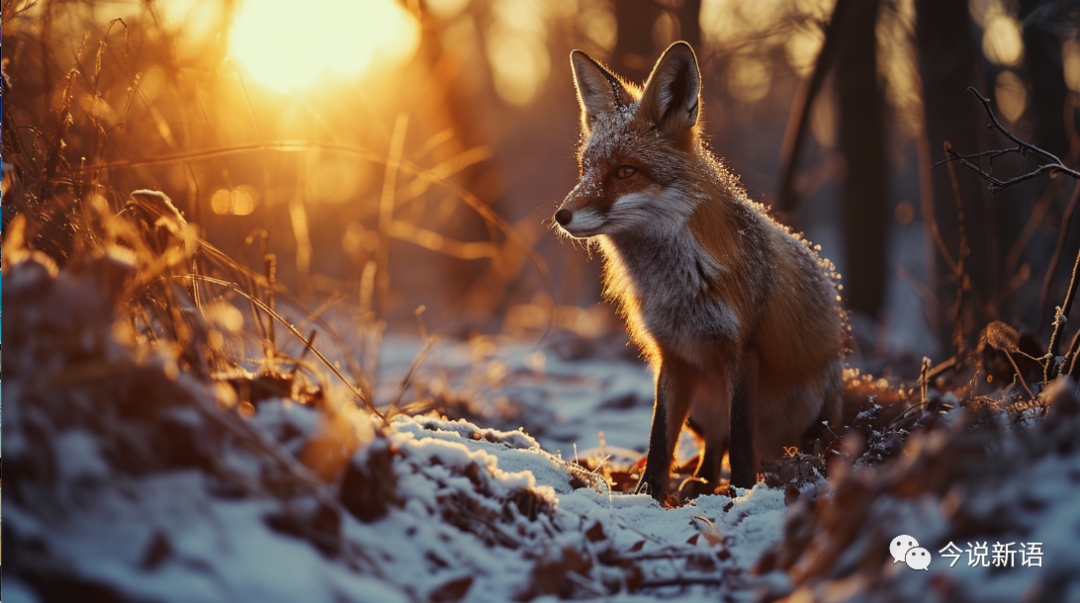
Tip:Wildlife photography, a very cute and fluffy fox, winter forest, sunset, cinematic lighting
The breakdown is as follows.
1) What: Wildlife Photography
2)Who:A cute and fluffy fox
3)Where:Winter Woods
4) When: at sunset
5) How to: Cinematic Lighting
Example 3: Fashion Photography
Prompt: Fashion photography, a French model wearing Minimalist-style clothes posing stylishly in a professional fashion photo studio, Modern era. studio lighting
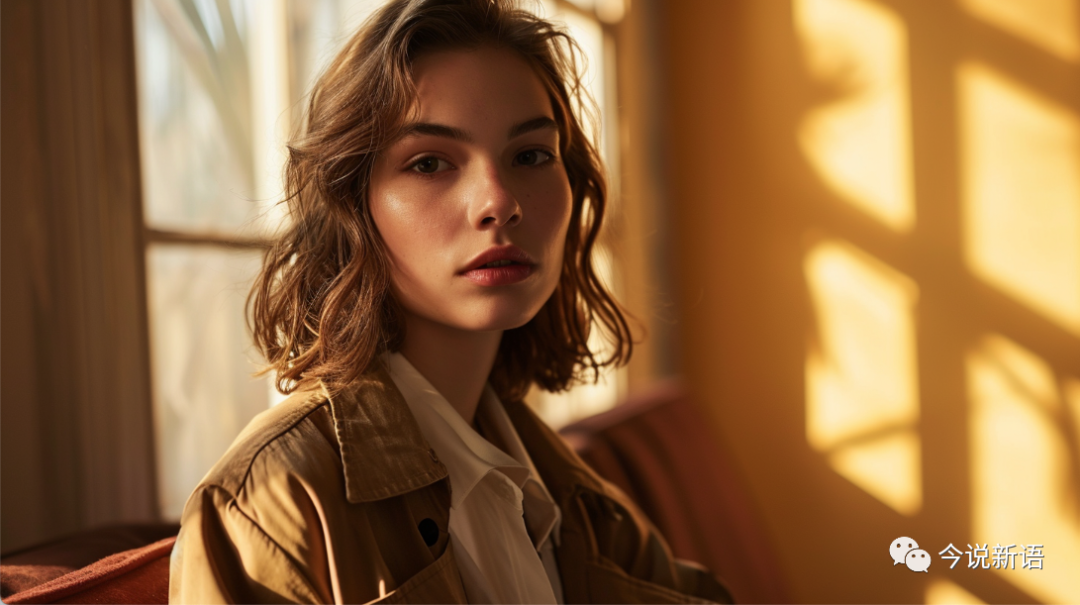
Tip: fashion photography, French model wearing minimalist clothes posing in professional fashion studio, modern, studio lighting
Break it down:
1) What - Fashion Photography
2) Who - French models posing stylishly in minimalist clothes
3) Location - Professional Fashion Photography Studio
4) When - modern times.
5) How To - Studio Lighting
Example 4: Landscape Photography
Prompt: Landscape photography, a romantic couple sitting in a canoe in the lake of the Swiss Alps at the time of sunrise, natural lighting
Tip: Landscape photography, a romantic couple sitting in a canoe in a lake in the Swiss Alps at sunrise, natural lighting
Break it down:
1) What - Landscape Photography
2) Who - a romantic couple
3) Location - Lake in the Swiss Alps
4) When - Sunrise
5) How to - Natural Lighting
As you can see from the introduction above, using the "4W1H Elements Approach" makes it easy to write a clear, specific and structured reminder from scratch, and it's not easy to miss key elements. It is a good introduction for beginners!
Prompts Advanced: 4W1H Prompts Masters
However, as we know, the V6 version of the prompts has new changes that allow for more complex prompt content to be understood and more refined prompt requirements to be realized. In order to adapt to the V6 version of prompts, we can add more details to keep the 4W1H structure to make the prompts a bit more fleshed out, and for this reason, I have prepared a GPTs to share with the column user group, which can quickly help you optimize the structure and details of the prompts to achieve better results. Welcome to join the column and continue to improve your prompt writing skills with the help of the Prompt Master GPTs!
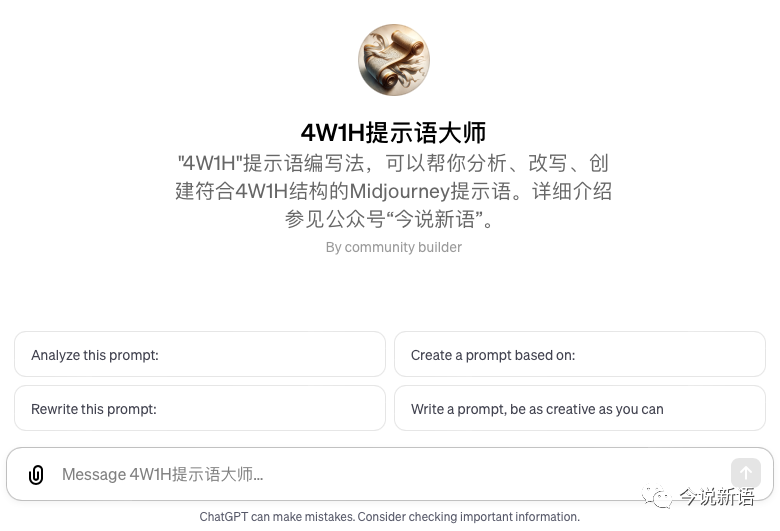
This GPTs can realize the functions of analyzing prompts, optimizing prompts and creating new prompts based on the 4W1H structure, and the modified prompts can give Midjourney a better comprehension. Its usage is very simple, directly send the prompts you wrote on the basis of the 4W1H mentioned earlier to this GPTs, which can quickly help you modify and output better prompts. In addition to this you can also perform the following four operations.
1. Analyze this prompt
You can send it your prompts, GPTs will list whether your prompts contain 4W1H parameters, if not will prompt you, and finally will give you a modified prompt. For example, we sent the first character portrait prompt to GPTs earlier, and the results of the analysis are as follows:
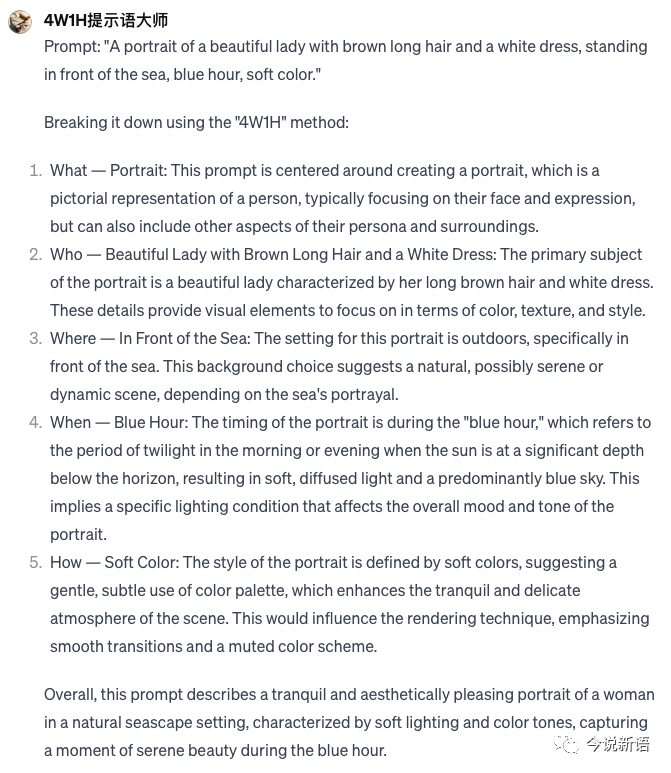
2. Create a prompt based on
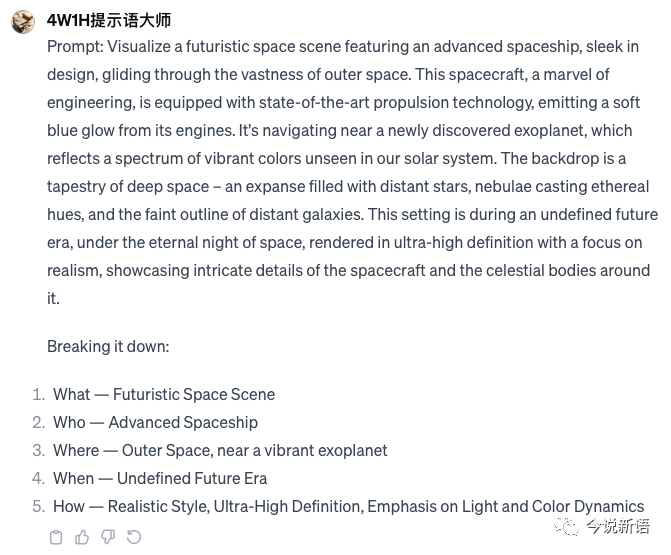
You can simply type in the theme you want, such as "space shuttle", and let GPTs help you write a prompt to meet the 4W1H, the prompt is as above, the effect is as follows:
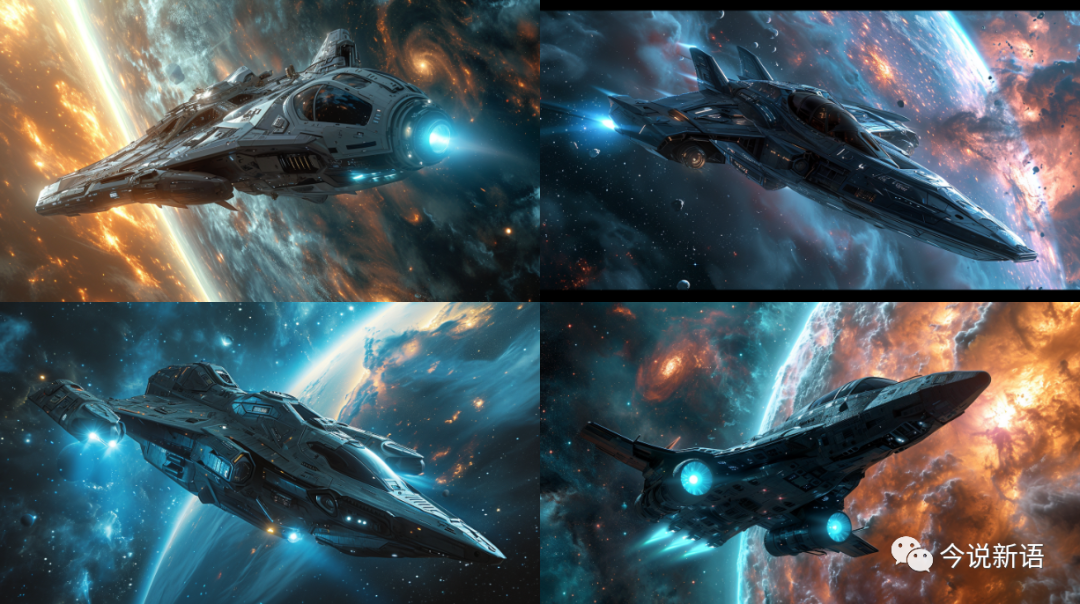
3. Rewrite this prompt
Rewrite your prompt.
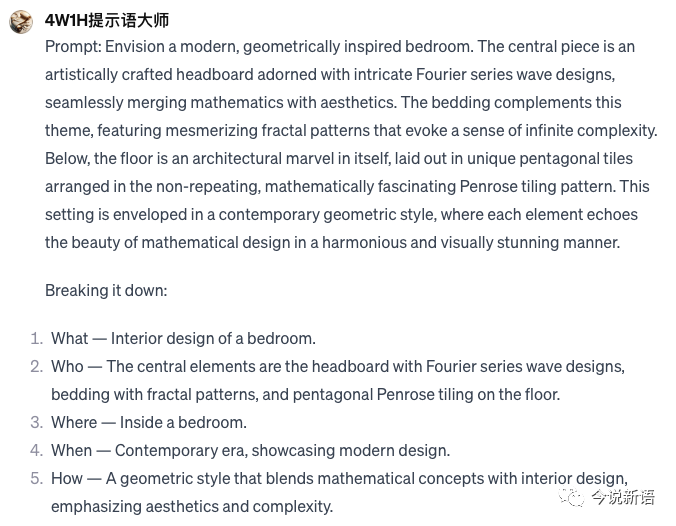
This GPTs will not completely overrule your prompt, but will simply revise and refine your prompt to add more detail, and the rewritten prompt is going to perform much better.
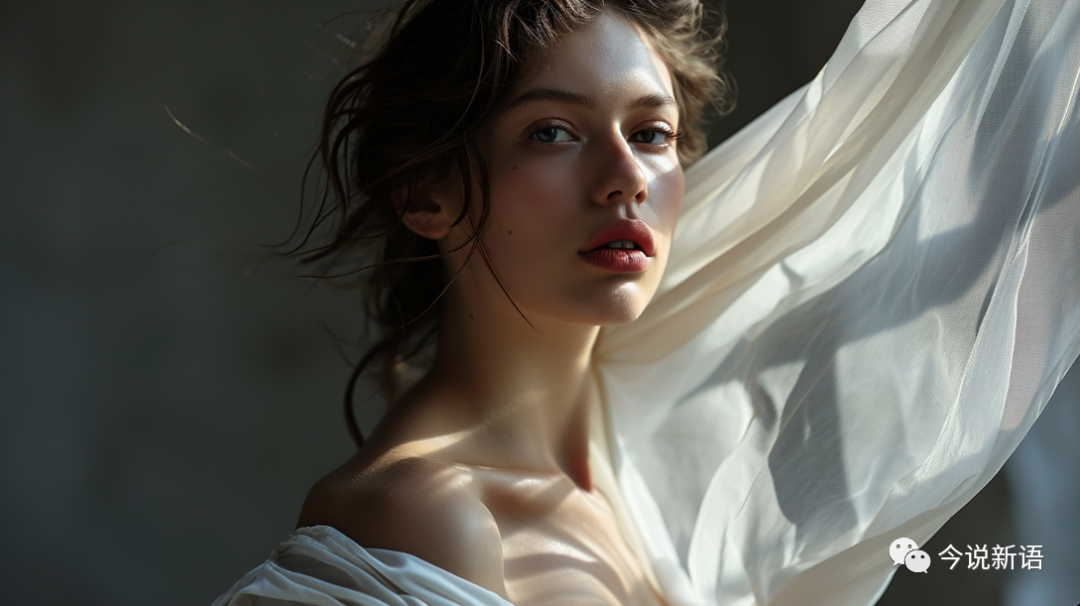
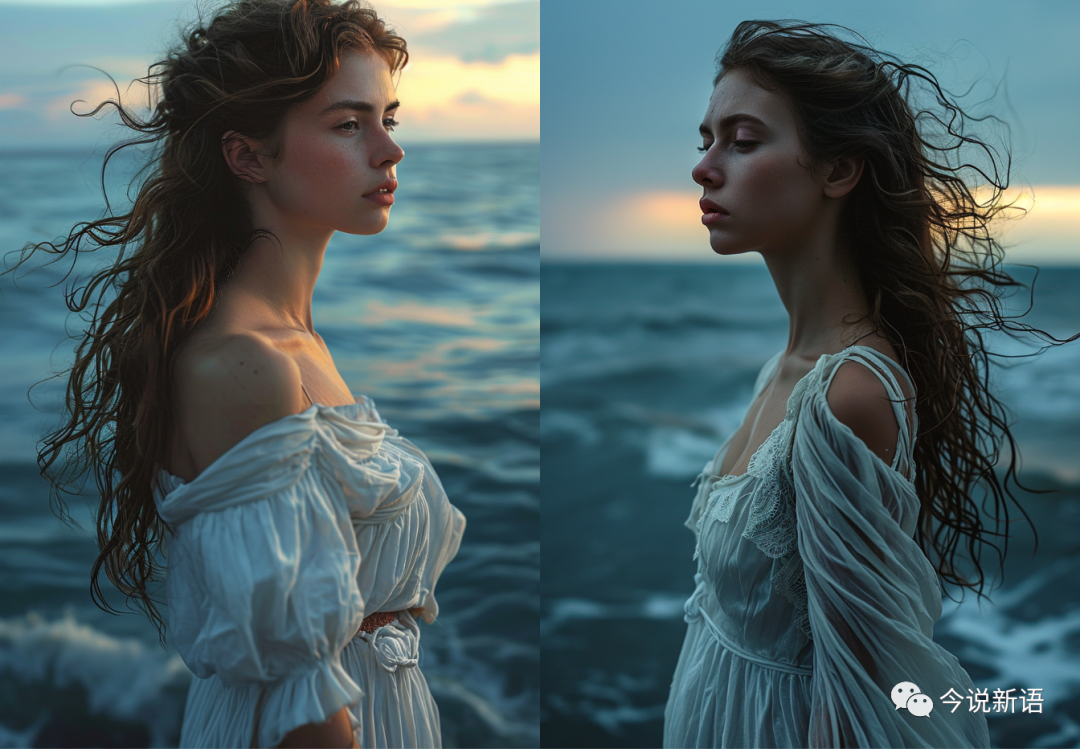
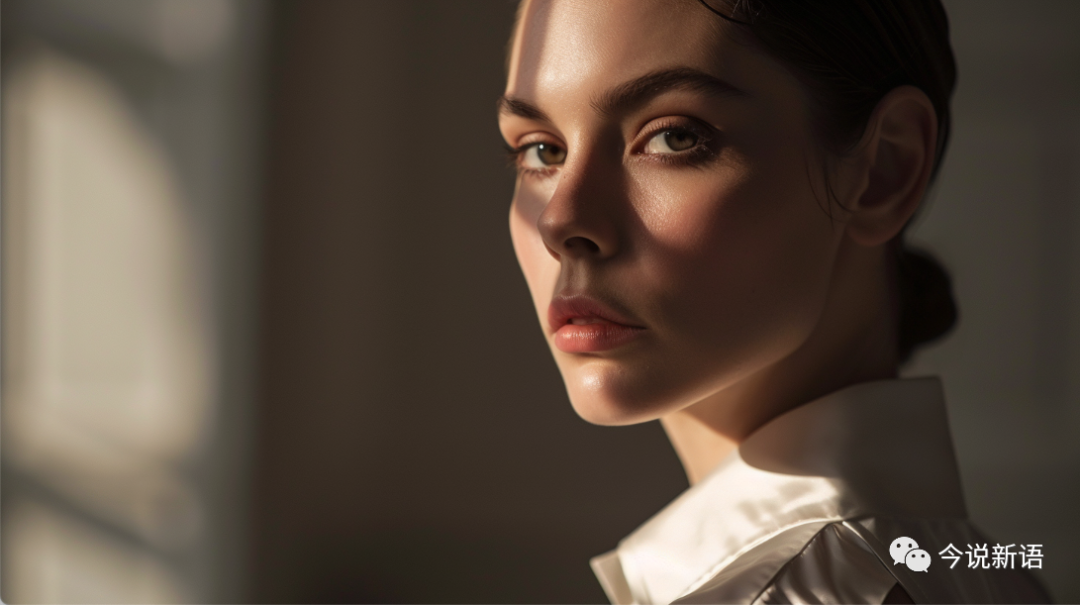
4. Have the GPTs generate a random cue (this counts as a method of entertaining the AI)
To summarize, the 4W1H method is very simple and easy to memorize, and I'm sure you'll never forget it once you've read the word. The GPTs written on this basis will help your prompts more fleshed out, fill in some details, and at the same time can help you understand whether the structure of the prompt is well-written, and help you form your own prompt writing habits faster. It is more like a teacher, the master leads the door, the practice depends on the individual.